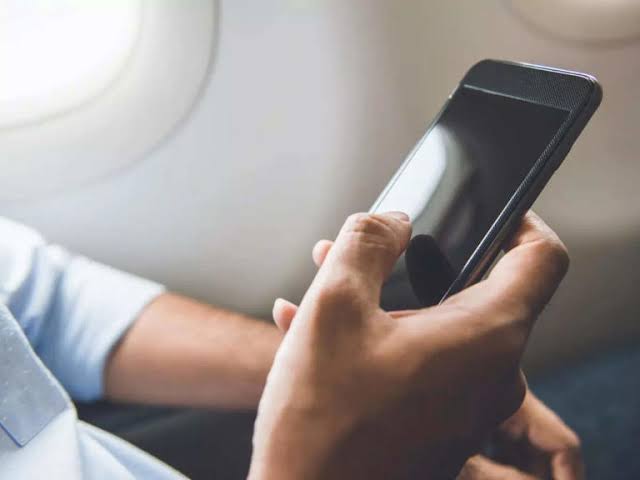
The recent Ibom Air incident, in which a passenger was arrested and remanded after a heated altercation with airline staff, has reignited discussions about aviation safety protocols, particularly the insistence that passengers switch off or place mobile phones in flight mode during take-off and landing.
While many travellers see the rule as a mere formality, aviation experts stress that it is rooted in safety and operational considerations. Below are three key reasons behind the regulation, and why disregarding it can escalate into serious consequences — as seen in the Ibom Air case.
1. Preventing Radio Frequency Interference
Airplanes rely on highly sensitive navigation and communication systems. Even small amounts of radio frequency interference from active mobile devices can disrupt cockpit instruments, especially during the critical phases of flight such as take-off and landing. While modern aircraft are better shielded, the risk — however minimal — is significant enough for aviation regulators to maintain the precautionary rule.
2. Ensuring Passenger Attention During Safety Instructions
Flight attendants give crucial safety demonstrations before take-off, and passengers are expected to be alert in case of sudden instructions. An active phone call, text exchange, or social media scroll can distract travellers from noticing emergency briefings or hearing urgent crew announcements. The Ibom Air altercation reportedly began after a passenger failed to comply with crew instructions, underscoring how non-compliance can quickly lead to operational and legal issues.
3. Compliance with International Aviation Laws
Most global aviation authorities — including the International Civil Aviation Organization (ICAO) and Nigeria Civil Aviation Authority (NCAA) — mandate that airlines enforce the rule on phone use. Disobeying a crew member’s lawful instruction is a punishable offence under aviation law, regardless of whether the phone’s signal actually interferes with the aircraft. In the Ibom Air case, the refusal to follow this simple safety protocol contributed to the passenger’s arrest and eventual remand in prison custody.
Airlines stress that these rules are not about inconvenience but about ensuring the safety of all on board. As the Ibom Air incident shows, ignoring them can carry not just safety risks but also legal consequences that extend well beyond the flight itself.








